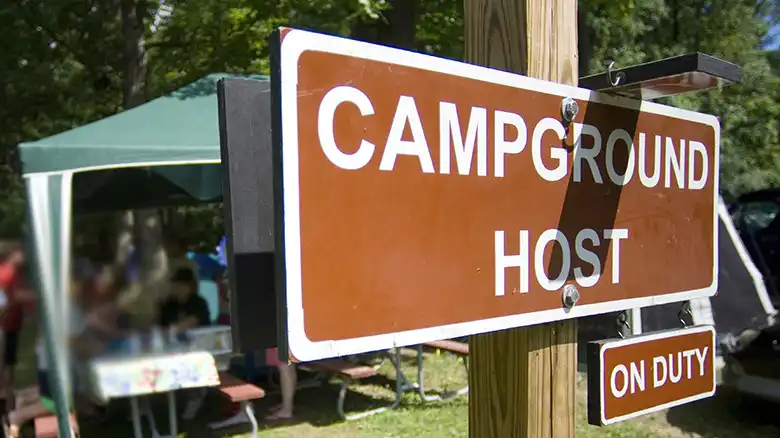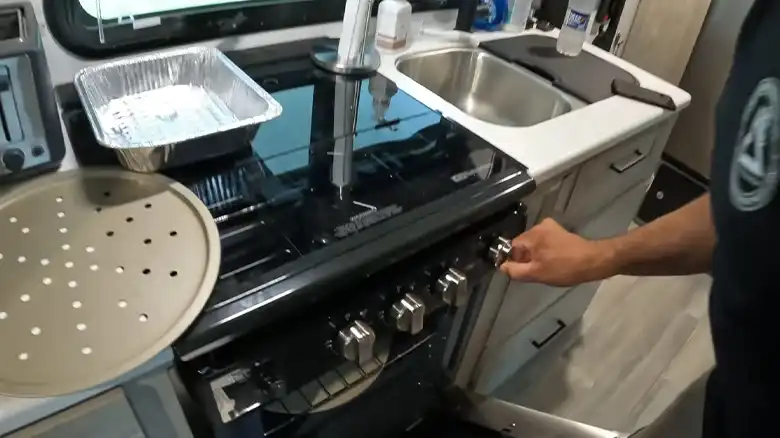RVs have unique energy needs when out on the road or parked at campsites. Having sufficient power to run appliances, electronics, lighting, and HVAC systems is essential for a comfortable camping experience. RV owners typically rely on either propane generators or solar power systems to meet their energy needs. This article compares these two main RV power sources to help you decide what would work best for your RVing lifestyle.

Propane Generators for RV Power
Propane generators are commonly installed in RVs to generate on-board electricity. They work by burning propane to spin a generator that produces AC power. This allows you to run your RV’s electrical appliances and accessories even when not hooked up to an external power source.
A key advantage of propane RV generators is their reliability. They provide a stable energy output for as long as you have propane fuel available. This makes them well-suited for running high-draw appliances like air conditioners, microwaves, and induction cooktops. Propane generators also provide power on demand – you can start them up whenever you need electricity.
However, propane generators do have some downsides. Fueling and maintenance costs add up over time. Propane takes up space when stored on board. Generators also generate noise pollution and air emissions. Without proper ventilation, carbon monoxide buildup can occur. Propane is not a renewable energy source either.
Solar Power Systems for RV Energy Needs
Installing solar panels on your RV allows you to harness energy from the sun to charge onboard batteries. The batteries then provide DC electricity to power your appliances, either directly or by converting to AC power through an inverter.
Solar energy is clean, renewable, and free. Solar panels don’t require any fuel source – just ample sunlight. You also avoid the noise and fumes produced by a generator. Your energy needs can easily align with peak sunlight hours. With proper battery storage capacity, you can store enough power to get through cloudy spells or overnight without sunshine.
However, solar power output fluctuates depending on weather and sunlight intensity. Batteries are large, heavy, and require ventilation. Upfront costs for equipment, wiring, and installation are high. You need solar charge controllers to prevent overcharging. Having limited roof space can restrict the number of panels you can install as well.
Source: interstateadventures
A Comparison of Propane Generators and Solar Power Systems
When deciding between powering your RV with a propane generator or solar power system, it’s helpful to compare them across a range of factors. Those are –
Power Output
Propane generators deliver steady, reliable AC power on demand directly from the fuel. Output stays constant whenever you need electricity. Solar panels produce variable DC power that relies on battery storage to supply appliances. Cloudy weather can impact charging capacity.
Powering Appliances
Generator electricity can directly run all AC appliances like air conditioning units, induction cooktops, and microwaves that otherwise require shore power. Solar energy works well for lighting, DC refrigeration, and low-draw electronics, but cannot power larger 110V AC appliances without inverters and battery banks.
Upfront & Operating Costs
Propane generators have lower initial purchase costs but recurring fuel refill and maintenance expenses. Complete solar power installations cost more upfront but provide free sun energy for decades thereafter, with generally only minor component maintenance needed over time.
Eco-Friendliness
Propane combustion emits fumes and noise pollution, while solar panels generate clean, silent renewable energy from sunlight. However, manufacturing solar equipment does entail some embedded carbon emissions too. Over the full lifecycle, solar has a lower overall environmental impact long-term.
Convenience & Reliability
Generators offer quick, reliable electricity anytime with easy refueling at propane stations across North America. But solar power relies on available sunshine and battery capacity, so planning usage around weather and travel is important. Having generator backup helps overcome solar intermittency issues when they arise.
Installation & Maintenance
Propane generators mount easily with hookups and exhaust routing as key tasks, along with periodic oil changes. Solar power systems require careful panel placement plus wiring controllers and batteries that integrate smooth power conversion and usage monitoring.
Customization & Expandability
You can start small with an affordable basic generator suited to current needs, then upgrade size over time if power demands increase. Solar power is highly modular – add more panels and battery capacity whenever convenient to continuously expand renewable energy production.
With these comparisons in mind across all major decision factors, here is an overview table of their key differences –
| Propane Generators | Solar Power Systems |
| Provide on-demand AC power whenever needed | Produce stored DC power from sunlight to run appliances |
| Reliably output steady energy | Output fluctuates based on weather and daylight |
| Require propane fuel and refueling | Sunlight is free, renewable fuel source |
| Higher noise and exhaust emissions | Clean, silent operation |
| Lower upfront costs | Higher initial purchase and installation costs |
| Recurring fuel and maintenance expenses | Mostly minimal maintenance needs |
When to Opt for Propane Power?
Running your generator lets you reliably power AC appliances and electronics on demand. It works well for –
a) Air conditioning, microwaves, induction cooktops – high energy-draw appliances
b) Charging devices when sunlight is not available
c) Backup power if batteries run low
d) Dry camping without hookup access
e) Quickly getting power without waiting for batteries to recharge
When to Choose Solar Power?
Solar energy excels for running DC appliances directly or smaller electronics –
a) Lighting, fans, pumps
b) Charging phones, laptops and portable batteries
c) Powering appliances during peak sunlight hours
d) Parks and campsites with electric hookup access
e) Reducing propane usage
Which Option is More Cost-Effective in the Long Run?
Evaluating total ownership costs over your RV lifestyle can help determine the better value. Propane generators have lower startup costs but incur more recurring fuel expenses. Solar power costs more upfront but provides free renewable energy for the life of your RV. Carefully assess your budget, energy needs, and RVing priorities.
For moderate energy needs focused only when camping, propane generators often deliver better overall value. Daily heavy appliance usage favors solar power for free long-term use. Combining both systems can provide the best of both worlds – sustainable solar energy supplemented by propane-powered generators when needed.
How to Select the Best RV Power Source for Your Needs?
Deciding between a propane generator, solar power system or both depends on your budget, energy usage needs, and RV lifestyle priorities. Consider these tips –
- Make a list of must-run appliances and typical usage patterns
- Calculate necessary power capacity to meet your needs
- Consider installation requirements – available space, wiring, ventilation
- Set a budget and calculate long-term operating costs
- Prioritize convenience, sustainability or reliability
- Start small by adding components over time
The Bottom Line
Ultimately there are merits to both approaches —
Eco-Focus? Solar energy is clean, renewable, and sustainable – ideal for minimal environmental impact.
Reliability Essential? Propane generators provide stable on-demand power whenever you need it.
Best of Both Worlds? Using both systems can maximize flexibility to run sustainably most of the time with generator backup as required.
Think through your typical energy needs and budget to decide what balance makes sense for your RV lifestyle.
End Note
With proper energy planning tailored to your RV priorities, you can enjoy off-grid comfort using either propane generators, solar power systems, or a hybrid approach. Determine your budget, appliance usage needs, and eco-friendliness goals. This will help guide your decision to outfit your RV with green energy, reliable power, or a versatile combination of both propane and solar systems.
People Also Ask
Can I run air conditioning off the grid with just solar power?
Air conditioners require a lot of power. So relying just on solar systems to run them would require a very large capacity, making it impractical and costly for most RVs to run an AC this way. Supplementing solar-charged batteries with a propane generator for AC power is an effective hybrid solution.
What size propane generator or solar panels is best for my RV?
As a rule of thumb, estimate how much power in watts all your essential appliances will draw in total, then double that number to determine your generator or solar panel capacity needs. Add in a safety buffer to handle surges too. Carefully matching capacity to realistic usage prevents buying oversized, expensive systems you don’t really need.
Do I need solar panels if I have a propane generator?
Not at all – you can just rely solely on generator power if that meets your needs. But many RVers add solar panels to use clean, free energy from the sun whenever practical, avoiding generator runtime and fuel expenses. Propane generators still work great for supplemental heavy loads or backup power when needed.
What size batteries do I need for boondocking with solar power?
Plan for 100-200 amp-hours of battery storage capacity for each day you intend to camp off-grid without sunlight to recharge panels. Having 400-600 amp-hours often provides flexibility for extended stays if the weather turns overcast for a few days. Match your battery bank capacity to your boondocking trips.
Can I recharge propane generator batteries with solar panels when dry camping?
Yes, absolutely! Hooking up solar panels to charge your RV house batteries allows you to store solar energy during the day. This reserved power can then run appliances directly or start up your propane generator to power heavier AC loads using your batteries without needing shore power. Many RVers rely on solar for sustainability with propane for flexibility.


